CHICO — The third meeting related to a commercial building’s sewer bill came to a quick resolution Tuesday evening when the Chico City Council denied the owner’s appeal.
The item took two minutes, as testimony and public comment occurred at the initial meeting.
On July 16, the council heard an appeal filed by Daniel Hays challenging the calculation of his sewer bill. Councilors referred the matter to the Internal Affairs Committee, which reviewed the billing methodology in a special meeting Monday to report back to the full council.
Dr. Sean Liston, left, and other physicians with Healthy Rural California talk about plans the organization is pursuing for educating providers during a presentation to the City Council on Tuesday, Aug. 20, 2024 in Chico, California. (Evan Tuchinsky/Enterprise-Record)
Hays, a former councilor, lodged his appeal after the Public Works Department determined he was billed correctly for his building in the 1300 block of Mangrove. He attended Monday’s session when the IAC — Kasey Reynolds, Tom van Overbeek and Addison Winslow — looked at sewer charges broadly.
Van Overbeek, the committee chair, pledged at the end of the discussion that the city attorney would review the sewer-charge code with other city staff and revise language as necessary to match the methods.
Tuesday, he summarized the review and said the IAC “came to the conclusion that the city had an extremely equitable algorithm, and we couldn’t fault it.” He then moved to deny the appeal and uphold the Public Works determination; Winslow seconded, and it passed 6-0.
Downtown
In July’s regular meeting, the council voted to direct the Community Development Department “to immediately assess the property located at 131 Main Street for any existing danger related to the long-term closure of this building and to have staff come back with recommendations on how to bring it up to code.”
Mayor Andrew Coolidge initiated the review with a councilor request his colleagues unanimously supported, suspending council rules in order to take that immediate action. Coolidge cited safety concerns for the building at the northeast corner of Main and Second streets — particularly second-floor window openings that remain open to the elements.
Community Development Director Brendan Vieg said the city building official inspected the site and determined it posed “no imminent danger” — but he added that both staff and the owner recognize rehabilitation work has been underway since 2015.
City Manager Mark Sorensen described project’s duration as “an inordinate amount of time.” Coolidge quipped, “It probably took longer to build the new World Trade Center.”
Staff brought forward what Vieg called “an achievable schedule for completion of the exterior work” — January 2025 — and it likely will take several more years to complete interior housing units. “Building permits do have lives,” Vieg said, “but we generally want to extend them to bring the project to fruition.”
Coolidge asked what the city could do from a policy perspective to avoid longstanding blight. Van Overbeek noted code changes have toughened the city’s response; City Attorney John Lam said wording in the code is vague, but some existing provisions could be modified.
Architect David Griffith detailed the building’s history and plans for the facade restoration. Owner David Halimi told councilors, “No one has an incentive to get the project done more than me” and that the work “doesn’t really pencil out; it’s more of a passion for me.” He referred to himself as “a perfectionist.”
Van Overbeek said, “I think it’s a beautiful project. I hope it gets done in my lifetime.”
“Me, too,” Halimi replied, adding that he might not pursue the loft apartments, a reflection of “the support I’ve gotten from some city officials.”
Coolidge challenged him, culminating his queries with, “How can we believe you?”
The mayor accepted the report and reserved the option of addressing it further in the future.
Art boxes
The Arts Commission proposed establishing a program for local artists to adorn city-owned utility cabinets with their work.
City Clerk Debbie Presson said locations would be where the city has a dearth of public art, though the initial group would be downtown. According to her staff report, “utility boxes are frequently the target of graffiti, and studies show that boxes covered in art are vandalized far less often than those that are not.”
Sponsorships would cover the cost.
“All this for free to us?” Winslow asked. Apart from staff time for a few meetings, “the city is not being asked for a dime,” Presson responded.
Van Overbeek suggested a theme and that the subjects be “nonpolitical.” Presson said the works would not be political because “commissioners wouldn’t allow that.” Two of the commissioners — Monica McDaniel and Bonnie Pipkin — elaborated on the proposal.
Echoing van Overbeek’s idea of a theme, and noting a “surge in brightly colored” public art, Reynolds said she “can see this looking hodge-podgy” — but added, “It’s important we pay attention to artistic freedom, and I’m excited about this.”
Reynolds moved to approve, and it carried unanimously.
Other items
• Physicians with Healthy Rural California made a presentation on a proposed Interprofessional Healthcare Campus in Chico — part of a program the organization launched to attract doctors to the community and boost local health-care access. The facility would educate providers at all levels and might include a medical school.
• During public comment, Coolidge called a recess when speaker Stephen Hazel veered from local topics — i.e. “within the city’s jurisdiction,” per council policy — and grew heated when the mayor pointed this out. Hazel also spoke before closed session.
• The council authorized a deputy director position in the city clerk’s office for management analyst Angie Dilg, who’d been working under both the city manager and city clerk. Her contract carries a salary of $115,000 and a vehicle allowance of $400 a month.
• Councilors unanimously approved the consent agenda featuring ratifications of contract policies, reimbursements for employees, budget adjustments to capital projects and an emergency declaration for the Park Fire.
• The council designated Reynolds as the city’s voting delegate and Deepika Tandon as the alternate to the League of California Cities conference in October in Long Beach. Presson said the group may not have any voting items for the second straight year; previous attendee Winslow discussed benefits of networking and training.
Related Articles
Chico’s new building panel lays down its foundation
Chico committee hears about sewer rates
Chico City Council taking two more looks at sewer rates
Oroville City Council to hear about homelessness
Chico to file motion to exit Warren v. Chico settlement agreement
• Under councilor requests, Winslow requested a discussion of city policies related to homelessness and camping ordinances, which Lam called premature and Coolidge said he wouldn’t participate; it died without a second. Councilors did agree to discuss regulating massage businesses (a request from Tandon); refer a celebration of Jackson Pollack to the arts commission; and, per the earlier discussion, acting on blighted buildings (from van Overbeek).
• In closed session, councilors received briefings on ongoing legal matters including Warren v. Chico. Lam reported no action was taken but staff received direction, and that scheduled updates on labor negotiations did not take place.

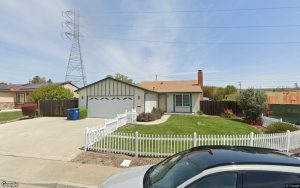


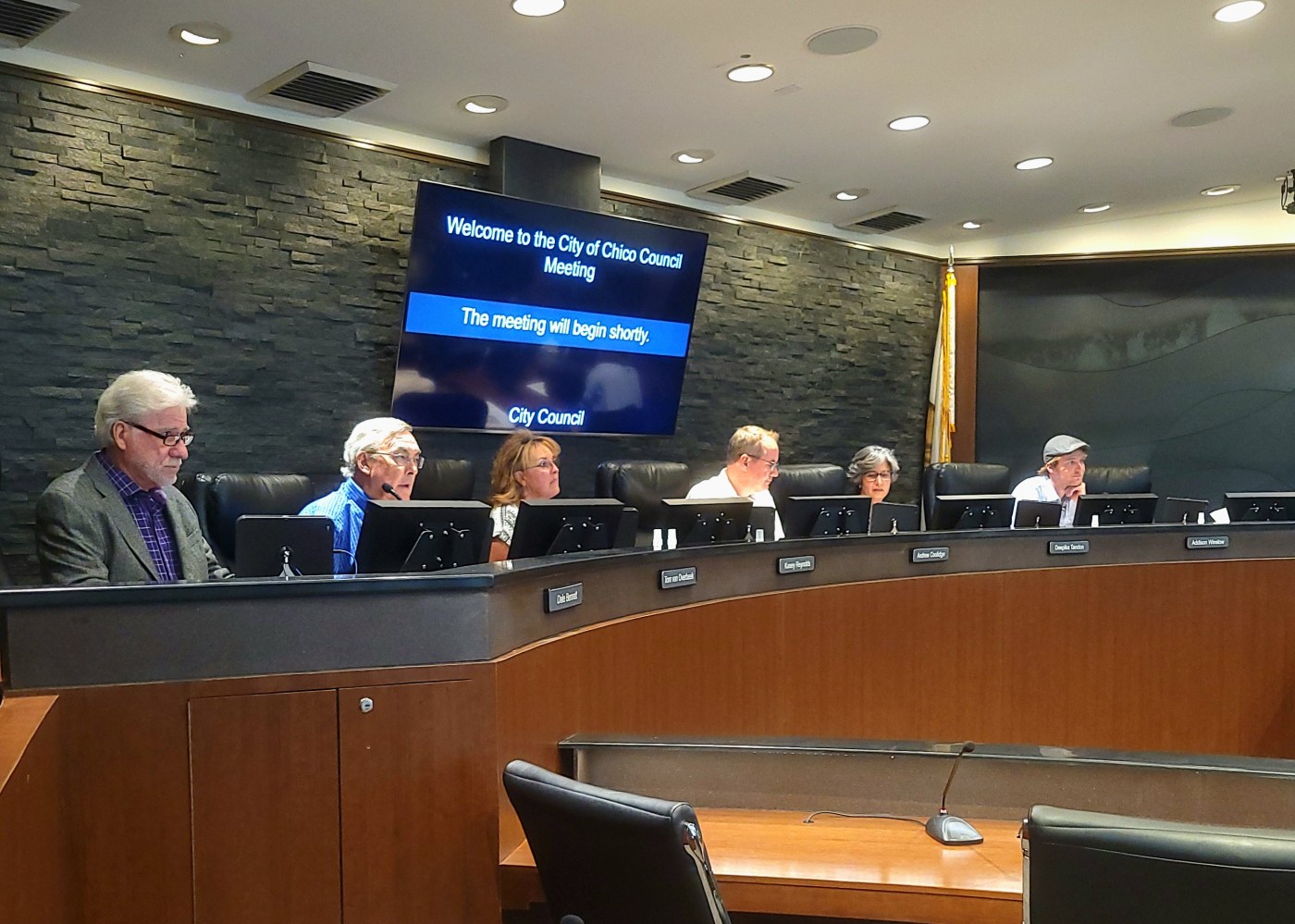

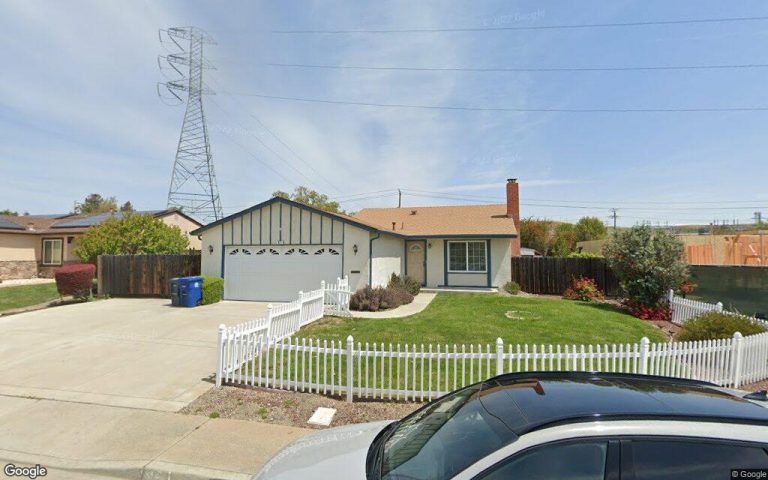


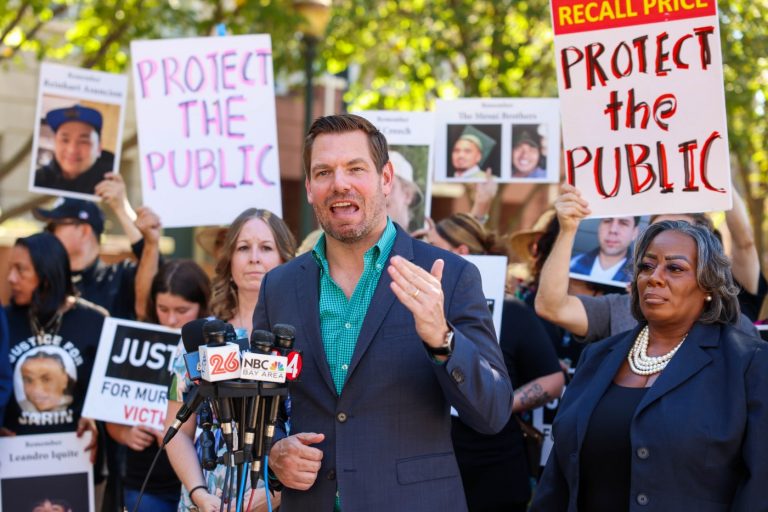

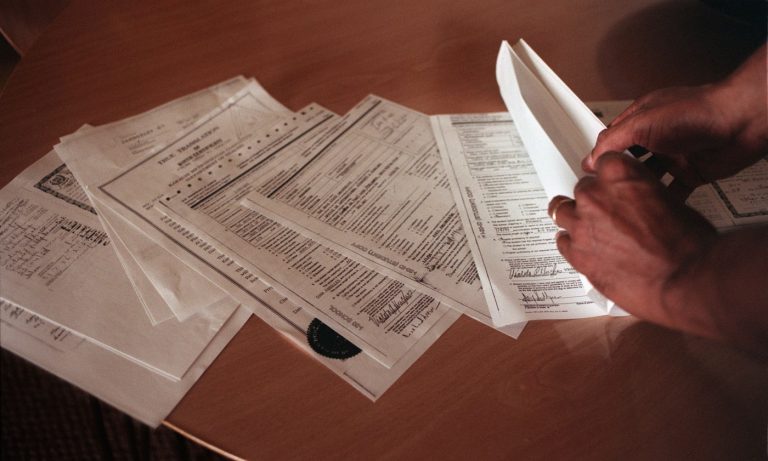
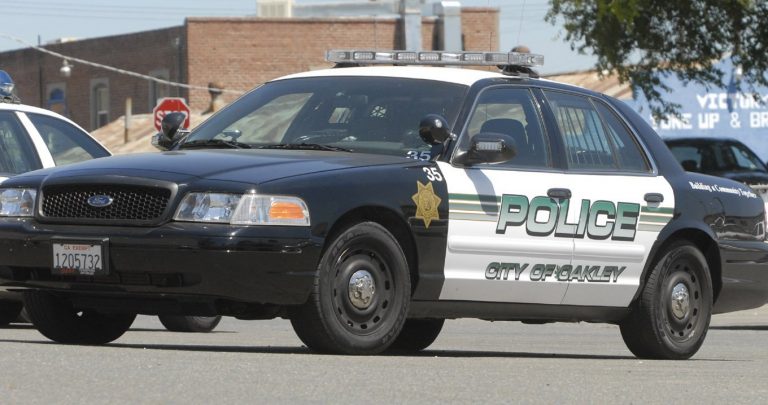
+ There are no comments
Add yours